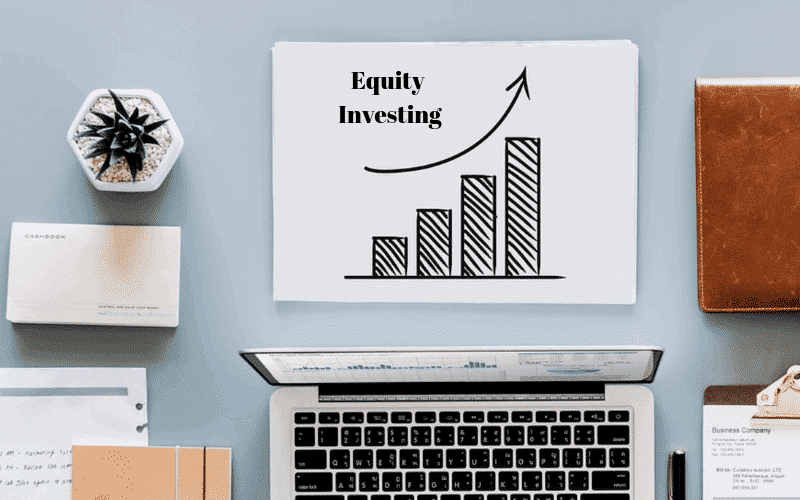Affiliate Links
Bonds are often an integral part of a diversified investment portfolio. In our Worthy Bonds review, we’ll introduce you to a unique type of bond investment open to all investors. If a 5% interest is attractive to you, you’ll want to learn about Worthy Bonds.
How can a bond investment pay a 5 % return in a zero interest rate environment? Here are a few of the reasons.
Skipping the middleman is a great way to deliver value to both consumers and sellers. It’s a business strategy that has been around for a while.
Netflix does this with movie production – being both the producer and the distributor of films. Warby Parker is doing with glasses – sourcing glasses direct from manufacturers and making them available to consumers online for reasonable prices.
And now, it’s what Worthy Financial is doing with its Worthy Bonds platform.
Through Worthy, everyday people like you and I can purchase bonds funding small businesses and entrepreneurs that pay 5% interest. Instead of putting money in a bank and earning a measly 0.01% to 2.00% interest rate while they loan our money out for much more, we can get in on the action.
Of course, “getting in on the action” comes with added risk, but it’s an offering that we’ll dive into below.
Table of Contents
- Bond Investing 101
- Worthy Overview
- How it Works: Worthy Bonds
- Pros and Cons of Worthy Bonds
- Summary: Worthy Bonds Review
Bond Investing 101
First, I wanted to provide an overview of bond investing. Luckily, this will be quick, because bonds have a pretty straightforward definition:
A Bond Is a Loan
When you invest in a bond, you loan money to a government or business, and in return, you receive an interest payment. It’s like when you finance a car and have to pay interest to a bank on the loan that you take out but in reverse. Now, you’re “the bank” collecting interest on a loan that you gave out, which is why they typically call it fixed income.
There are many types of bonds available to investors, including:
- Government Treasury Bonds
- Municipal Bonds
- Corporate Bonds
- Worthy Bonds
Today we’ll be diving into Worthy Bonds, which are like a corporate bond but focused on small-business loans
Worthy Overview
Worthy Bonds is a product offering by Worthy Financial, Inc. The company was founded in 2016 by Sally Outlaw and takes advantage of Regulation A+ (Reg A+) of the JOBS Act, which was approved in June 2015 to help small business owners raise money from both average and wealthy Americans.
As described on their website:
“Worthy Peer Capital is the wholly-owned subsidiary of Worthy Financial, Inc. – a financial services company committed to community capital. We believe everyone is worthy of economic security and that we are all better off if we invest in each other.”
As mentioned, Sally Outlaw is the CEO and founder of Worthy Financial, and she seems to have a personal mission to give everyone the same opportunity to grow their nest egg, which she has reflected in the Worthy Bonds offering. It’s a mission that I think we can all get behind.
Worthy Bonds are SEC qualified bonds made up of loans to asset-backed small businesses. A lot of jargon there, but they are primarily loans made to entrepreneurs.
At a high level, Worthy Bonds are unique because:
- You can start investing with as little as $10
- They offer 5% interest
- There are no fees
- Anyone can invest in them
One thing to make clear is that these bonds are not FDIC insured. Like any investment, there is a level of risk involved.
How it Works: Worthy Bonds
As mentioned at the beginning, Worth Bonds kick out the middleman.
A business borrows money from Worthy using the funds that you invest. In return, you get a direct piece of the interest that the company pays you on the money you’ve loaned them, which is 5%.
Of course, Worthy takes a piece of the pie as well. They are charging the business some interest rate above 5%. For example, they might be charging 10%, giving you 5% and keeping 5% themselves.
The difference is, instead of a bank taking money from your checking or savings account and loaning it out for 10% while you receive next-to-nothing in return (except for security), you get to reap some of that reward.
Who Can Invest?
Worthy Bonds are open to both accredited and non-accredited investors. However, there are some limitations to non-accredited investors.
Being an accredited investor has nothing to do with your credit; it is someone that meets at least one of the two qualifications below:
- Has a net worth of $1,000,000 (excluding the value of a primary residence)
- Has an annual income of $200,000 or more ($300,000 for married couples) with a reasonable expectation to make the same or higher income in the current year
Accredited investors have no limitations to what they can invest, although they may have to call or visit a physical branch to invest unusually large sums of money.
Non-accredited investors are limited to investing 10% of their annual income. Though, I don’t think non-accredited investors should want to invest any more than that, anyway.
Worthy Bonds Risk
Worthy Bonds invests in asset-backed companies, which partly de-risks the loans.
They strive to make loans to companies that have liquid assets that are greater than the value of the investment itself. If the loan goes south and small business defaults, Worthy, in theory, should be able to recoup its funds.
However, since they are not FDIC insured, there are still risks to losing your money like with any investment. Nothing is guaranteed.
Getting Started
Like many new fintech companies, getting started with Worthy Bonds is easy.
You can begin the sign-up process here, and after providing necessary personal information, you connect a bank account to fund your investments. Worthy also has started to offer IRA investment options if you are interested.
Once you get started, you can choose to reinvest your interest payments ongoing or to pull them out as you receive them. If Worthy is a long term investment for you, reinvesting interest is usually the way to go.
One of the great things about Worthy Bonds is that there are no fees. You get to keep the full 5% that they provide in interest (less any taxes), and you can withdraw your money at any time without any early withdrawal penalties.
Last, Worthy also offers a round-up feature. Like Acorns, if you need a little help with saving, Worthy will round up purchases to the nearest dollar and invest the difference into Worthy Bonds on your behalf (once your round up total reaches a $10 minimum).
For example, if you buy something for $9.45, they will round the purchase up to $10 and invest the $0.55 on your behalf.
Pros and Cons of Worthy Bonds
Pros of Worthy
Small Minimum Investment
Being able to start with as little as $10 is a tremendous perk of Worthy Bonds.
It allows new and everyday investors to start today, instead of having to save up money just to be able to begin investing it. As they state in their mission, they’re helping people grow their nest egg even when they don’t think they can.
No Fees or Penalties
Worthy does not charge any early withdrawal penalties. That’s what differentiates them from Certificates of deposit (CDs) and other bond offerings and makes them feel more like a savings account or money market account. You can access your money whenever you need it.
Also, there are no fees at all with Worthy Bonds, which makes them very different from bonds funds and exchange-traded funds (ETFs) that typically charge a small expense ratio.
To be fair, they are taking a spread and a piece of the loan interest. So, there is an opportunity cost to investors because they are only getting 5% instead of 7%, or 10%, or whatever Worthy is collecting in interest.
Open to Non-Accredited Investors
Worthy bonds are open to everyone! Again, another way they are living up to their values and allowing investors to diversify their investment portfolio in a way typically only made available to wall street.
As mentioned, there are limitations for non-accredited investors – you can only invest up to 10% of your income. Though most people likely are not seeking to invest more than that amount anyway.
Strong Returns (for Bonds)
A 5% return is an excellent return for a bond.
Most high yield savings accounts today (as of April 2020) are only offering 1.5% – 2% interest, and most bond funds today only pay around 2%.
Sure, you can likely find some corporate bonds offering close to 5%, but the risk on those options may be relatively high.
Being able to get 5% returns with Worthy makes them very competitive in this regard.
Cons of Worthy
Risk
Worthy Bonds are not FDIC insured like a bank account, which makes them much riskier than a high yield savings account.
We know that assets back their loans, but that’s not always enough when companies start defaulting. The overall risk of Worthy Bonds is assumed to be less than stocks, but it is not very well-known because it has been tested.
Honestly, this next year may be a good test on how Worthy can respond and if they can continue to pay 5% while the economy struggles.
Short Company History
Worthy was founded only a couple of years ago in 2016.
Unlike treasury bonds and the S&P 500, which have decades of history to refer back to, Worthy Bonds only have a couple of years of history. Again, in my mind, this increases the risk associated with investing in Worthy.
Lack of Visibility
When you invest in Worthy Bonds, you cannot pick which individual companies you want to invest in. You have to rely on Worthy to invest for you.
Although, this isn’t necessarily a bad thing. Just like people opt to allow fund managers and indexes to select equity investments on their behalf, having Worthy select the loans takes some work off your plate. You just have to trust that they know what they’re doing
High Taxation on Interest
The interest received on Worthy Bonds gets taxed as ordinary income. Typically, this is a higher rate than capital gains taxes.
That is not inherently different from other corporate bonds, but is worth calling out.
Summary: Worthy Bonds Review
Worthy Bonds may be an attractive investment option for everyday people.
For those with higher risk tolerance, Worthy bonds could act as an emergency fund. For those just seeking to build a diversified investment portfolio, Worthy Bonds could be an avenue for them to invest in high yield bonds.
I like the overall mission of the company, which is to allow everyone to build sustainable wealth over time.
However, they are a new platform, and with every new investing platform, you should proceed with caution. Perhaps, only allocating a small portion of your portfolio if you think that fits your investment strategy and are interested in giving Worthy Bonds a try.
This post originally appeared on Wealth of Geeks and is being republished with permission.















